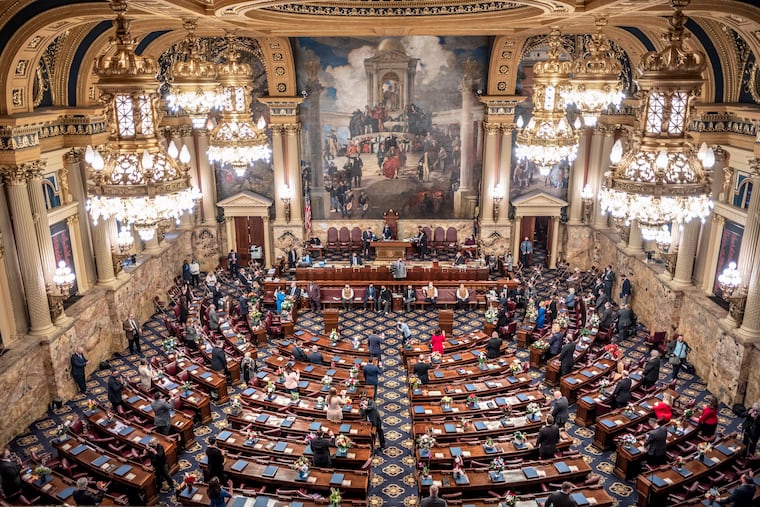Why do we pay Pa. lawmakers $24 per hour for sleeping and eating? | Editorial
There is something terribly twisted when those who make the laws are the ones who most benefit from them.

While the pandemic has turned the world upside down for so many — especially those who have lost their loved ones and livelihoods — state lawmakers have managed not only to hold on to their jobs but to their main qualification for holding that job: a total lack of shame.
We’re not talking about their outrageous efforts to disenfranchise voters during the November election and beyond, or the refusal to consider laws that might stem gun violence, or even the refusal to make any move to improve the minimum wage, which stands at $7.25 an hour.
Keep that last number in mind when you consider this: From last March until the end of 2020, despite rules that allowed them to work remotely like so many others (with some exceptions for committee chairs and leaders), many lawmakers still collected per diem payments of roughly $178 per day — for a grand total of $726,877.
“Per diems” are allowances for food and lodgings for those traveling more than 50 miles from their home to Harrisburg for state business. In a recent Spotlight PA report on the practice, 20 lawmakers were identified as receiving more than $10,000. Did they all actually travel to Harrisburg? Well, we can only assume, because receipts aren’t required for per diems. (Lawmakers have the option of filing for reimbursement for expenses using receipts.)
The legal graft, er, per diem payments, come on top of their base pay of over $90,000 per year (those in leadership positions make far more). And it’s worth noting that the hourly equivalent of $178 per day comes out to $23.73 per hour (based on a 7.5 hour day). That’s 70% above the current minimum wage.
According to the Spotlight PA report, Democrats took more per diems than Republicans. Two of the largest recipients each received over $24,000 in per diems on top of their salary.
A total of 24 Philadelphia lawmakers filed for per diems. State Rep. Kevin Boyle (D., Phila.), whose role as a minority committee chair required his presence in Harrisburg, received $21,604.
Following the Spotlight PA report, State Sen. Jim Brewster (D., Allegheny) introduced a bill to prevent lawmakers from cashing in on per diems, the third time he’s proposed such a bill. His bill garnered four cosponsors, an ominous lack of support that suggests this one won’t move forward either.
One lawmaker, State Rep. Valerie Gaydos (R., Aleppo), has introduced legislation to reduce the size of the state legislature from 203 to 151. This would better align the ratio of lawmakers to residents. It would save $4.7 million a year in salaries alone, according to the lawmaker. Based on past failed attempts, this too is unlikely to get anywhere.
The fact that this practice is legal is a weak argument, and not just because of the widespread economic devastation caused by the pandemic, including a $1.4 billion loss in state revenue. There is something terribly twisted when those who make the laws are the ones who most benefit from them. It’s time to consider an independent body that imposes the rules related to the salaries, perks, and operating budgets for the General Assembly. In a perfect world, that body would be called “the electorate.” But that world is not in Pennsylvania.